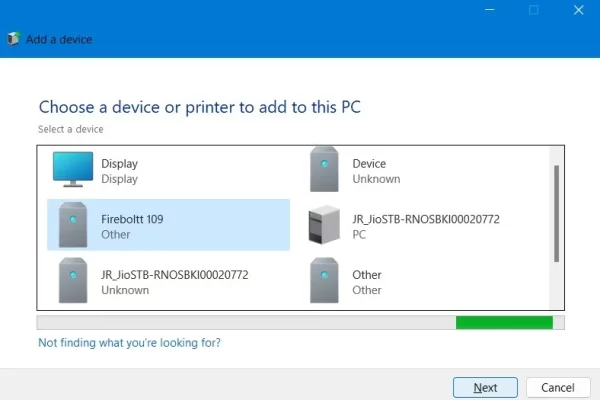The NEET exam is a single exam that allows students to apply to the country’s top medical and dentistry schools. Preparing for two years (Class 11 and 12) in one go may deter you, but nothing can stop you from securing an MBBS seat if you prepare wisely. In a high-flying competition like this, mere preparation may not be enough; you must prepare to the best of your ability.
A well-thought-out study schedule will keep you focused and motivated throughout the long process of finishing the curriculum and mastering the subjects. Create a monthly schedule and a weekly goal for each subject. A daily objective should be included in the planner to help you meet a weekly goal. Keeping track of your daily study routine will work as a motivator to get more done. The study planner must be strictly adhered to since it helps you to exert sustained effort without becoming weary straight away. This method necessitates the candidate’s complete honesty and discipline. Self-motivation is required to begin studying for the country’s most difficult medical admission exam. Regardless of one’s enthusiasm for a particular subject, adequate time should be allocated to each portion. Physics is widely regarded as the most difficult subject, and applicants frequently avoid it. However, it is important to realise that a subject like Physics may be conquered with enough effort and a thorough understanding of the fundamental ideas.
One of the most common mistakes aspirants make in their preparation plan is memorising all of the ideas without having a thorough knowledge of the subject. Cramming up the concepts appears to be a quick approach to go through a large syllabus like the one for NEET, thus instead of going over the fundamentals, applicants turn to rot learning. This method of memorising may appear useful at first, but it is ineffective in the long run. To develop a strong foundation on which the entire curriculum depends, it is necessary to go through basic concepts and have clarity on key issues. The entire course can be readily memorised if the fundamentals are strong.If the curriculum is finished through rote learning, the chances of forgetting it at the time of the examination are increased. To retain information for a longer period of time, it is necessary to have a deeper comprehension of the syllabus and essential concepts.
It goes without saying that while preparing for the NEET exam, there will be various questions that will need to be answered. If a candidate has questions about the syllabus, it is not causing concern; rather, it indicates that the candidate is putting up sufficient effort in learning. Doubts that arise when studying might sometimes disrupt the study flow.
. In such a circumstance, it is advisable to get assistance as soon as possible in order to continue your education. Keeping in touch with the teacher or mentor is beneficial because they are important in not only clearing doubts but also improving the NEET aspirant’s morale. It is critical to discuss all of your worries rather than relying on conjecture, as this can lose you marks. Aspirants for NEET must have a firm grasp of the topics and be able to resolve their questions.
Aspirants should strive to incorporate practise sessions into their study regimen in addition to preparing for the syllabus. Solving previous year’s questions and mock test papers is the ideal way to both test and add value to your preparation. Solving question papers broadens one’s understanding of the types of questions that can be asked. Candidates must practise for at least one hour in a timed environment to become familiar with the site and solve the question paper without stopping. Candidates will be able to adapt to test-like conditions and exam day pressure using this method. Because NEET is a pen-and-paper exam, students will be expected to fill out OMR answer sheets. Because they fill in the incorrect bubbles in the OMR sheet, candidates often lose marks even though they know the correct answer. To achieve the highest possible score on NEET, one must devise a technique and go through NEET Important Questions and Answers for precisely filling the bubbles and quickly answering the questions.
In all of the NEET suggestions, revision stands out as the most important because it aids in the retention of the concepts learned. The purpose of the examination is to see if you can retain subject knowledge as well as possible. Only thorough revision can ensure that the subject matter learned is retained to the maximum extent possible. Candidates can practise revising by writing out a summary of concepts in their own words to see how well they understand the subject. Formulas and equations in subjects like Physics and Chemistry must be memorised; for such things, one might make a formulae copy that must be revised on a daily basis so that it is imprinted in the memory. Aspirants must understand how to apply all of the formulae, not merely memorise them. For Chemistry, seeking help from experts on the subject such as A level chemistry tuition teachers is one of the best ways of preparing yourself for the exam. They can simplify the work for you and make the subject much easier and by the time you go to take the test, you are well prepared.
Making your own individualised notes for each subject and topic will help you study more efficiently. The notes should be organised in such a way that you may return to those pages for a quick review. Making notes can also aid in the best potential memorization of information. Writing and reading together contribute to a better comprehension of an idea. The examiner will directly pick up diagrams, flowcharts, figures, and tables from NCERT textbooks, which the applicant can practise in writing. This increases the likelihood of comprehending and remembering the components of a diagram or flowchart.
Many applicants use coaching centres to assist them achieve their goal of becoming a doctor. Although the study plan supplied by coaching centres may appear to be a difficult feat, it is vital to remember that self-study is also an important component of cracking NEET. Aspirants must try to strike a balance between coaching and self-study. Because the coaching institute may overlook minor errors that you are aware of, it is critical to identify such errors and concentrate on your weak subjects and parts of preparation in order to earn the highest possible score. It’s possible that overlooking minor errors will cost you an MBBS seat.
Because NEET preparation necessitates referring to a variety of texts, having a comfortable area where you can spread out your textbooks and notes can be advantageous. Choose a relaxing location that is free of interruptions. Because sitting in the dim light in the wrong position for long periods of time can harm your health and vision, a well-lit corner and a comfortable chair that aids posture should be picked. Make a setting that works best for you and will drive you to sit for lengthy periods of time to prepare.
Aspirants who want to bring their A-game to the exam centre should make sure they have everything ready far ahead of time. Make a checklist for the documents and objects you’ll need to bring with you based on the laws and requirements. Plan your route and travel time a day ahead of time so there are no surprises on exam day. Being late on exam day adds to the stress and should be avoided at all costs. The NEET exam has a strict dress code, and all candidates are frisked at the exam centre. Try to arrive one hour before the exam time to make it easier for the exam administration to run the exam smoothly and without any problems. Make strategies for how you will solve the question paper and how much time you will commit to each area in order to maintain attention.





